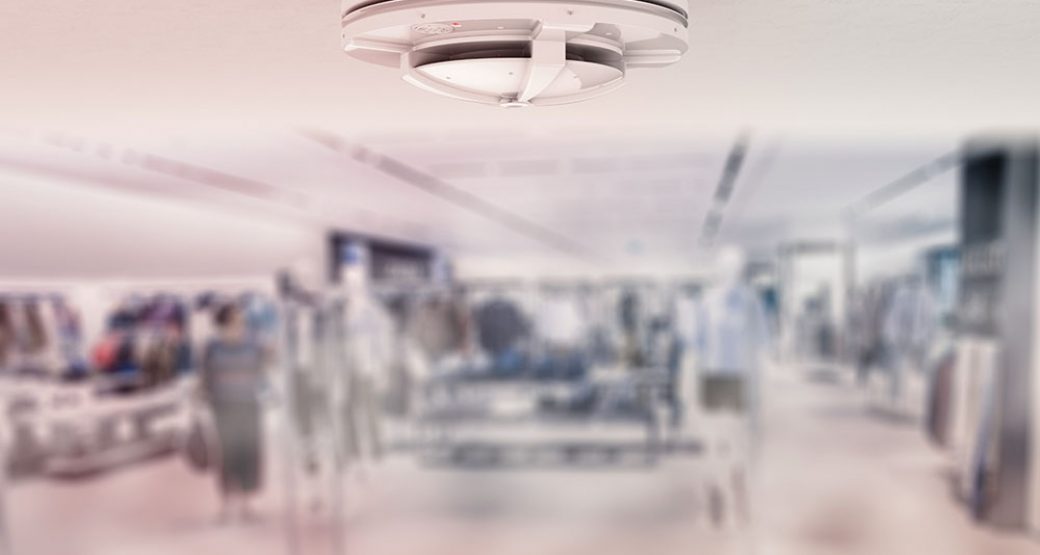According to a report by the Journal of the American Medical Association, carbon monoxide is the primary cause of accidental deaths caused by poisoning in the U.S. Approximately 500 Americans die from carbon monoxide poisoning every year, and 15,000 are hospitalized with symptoms related to carbon monoxide inhalation. Rising awareness of the lethal nature of carbon monoxide has paved the way for state, local, and commercial building codes related to carbon monoxide, including several commercial carbon monoxide detector requirements.
Why are Commercial Carbon Monoxide Detectors Important?
Carbon monoxide poisoning is one danger that can affect businesses at different levels, from industrial setups to corporate workspaces. To protect your employees from carbon monoxide poisoning, you should invest in a good carbon monoxide detector system. It can save lives by alerting individuals in a building about the presence of lethal levels of carbon monoxide in the air. Also, there are commercial carbon monoxide detector requirements in place (with more likely to come), so having the proper protection is both a moral and legal obligation.
Common Commercial Carbon Monoxide Detector Requirements
With the increase in the number of deaths and illnesses caused by high levels of carbon monoxide in commercial buildings, state legislatures across the country have started adopting laws mandating the installation of carbon monoxide detectors. As of March 2018, several states in the U.S. have taken the necessary steps to install carbon monoxide detectors in commercial facilities.
- Alaska requires approval from the state fire marshal for installing detectors in buildings.
- New Hampshire, Oregon, Connecticut, Rhode-Island, Pennsylvania, Washington, Vermont, Utah, and West Virginia require carbon monoxide detectors in all new commercial constructions.
- Florida requires carbon monoxide detectors in all new constructions as well as in all rooms with boilers.
- Minnesota recently passed a law making it mandatory to install carbon monoxide detectors in motor boats.
- Connecticut, California, Illinois, Maryland, and Maine require carbon monoxide detectors in schools and day-care centers.
- Fourteen U.S. states have made it mandatory to install carbon monoxide detectors in motels and hotels under the law. Out of the 14 states, New Jersey, Vermont, and Wisconsin have complementary administrative laws. Kansas and Washington have carbon monoxide detector requirements through administrative laws alone.
Commercial Carbon Monoxide Detector Requirements in Ohio
New provisions in the Ohio Fire Code require carbon monoxide detectors in both new and existing commercial buildings such as schools, industrial buildings, hotels, motels, nursing homes, daycares, etc. The owners of the buildings that are required to have carbon monoxide detectors can meet the carbon monoxide detector requirements by installing carbon monoxide alarms or comprehensive detection systems.
Existing buildings can use battery-operated carbon monoxide detectors. But, the battery operation allowance is not valid for new buildings unless there is no commercial power. For new commercial buildings, the carbon monoxide detectors should be installed during the building and construction process.
The Difference Between Commercial and Residential Carbon Monoxide Detection
Carbon monoxide detectors and alarms are crucial safety systems for commercial as well as residential buildings. However, there are some crucial differences between the two. Commercial buildings have special carbon monoxide detector requirements that residential buildings don’t. Unlike residential carbon monoxide detectors, when it comes to commercial carbon monoxide detection, regular testing is usually required on a large scale by qualified professionals.
Each commercial building requires a uniquely designed carbon monoxide detection system. For instance, a school would require different types of carbon monoxide detection than an office. Carbon monoxide detection systems in commercial buildings are way more complex than those used in residential buildings. Larger buildings require carbon monoxide detection systems that are carefully designed and well-planned, with a complete carbon monoxide risk assessment taking place before installation.
How to Tie Your Carbon Monoxide Detectors into Your Business Security System
Most of the commercial carbon monoxide detectors on the market are designed to be integrated into a commercial fire or business security system. All elements of the carbon monoxide detection system are interlinked with a centralized control panel that would require 24×7 monitoring. This will allow the fire department and emergency medical services to be notified when the commercial building is empty and/or as soon as a carbon monoxide emergency occurs.
At ProTech Security, we have a strong history of experience, innovation, and customer service. The ProTech Security Advantage is more than 30 years of service in Northeast Ohio and a strong commitment to providing quality, cost-effective protection for homes, businesses, educational institutions, and government facilities. To see what ProTech Security can do for you, contact us today.



